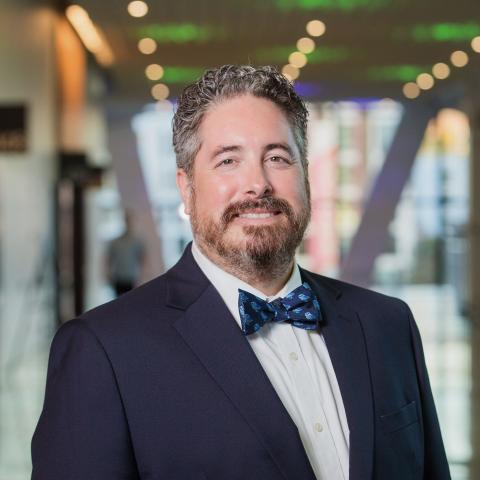Michael R. King, Ph.D.
J. Lawrence Wilson Professor
Biomedical Engineering Department
Vanderbilt University
Seminar Information

Many types of cancer metastasize via the bloodstream, where circulating tumor cells (CTCs) originating from the primary tumor can travel through the circulation or lymphatic system and engraft in distant organs. Previously our laboratory found that cancer cells exposed to physiological levels of fluid shear stress (FSS) are dramatically more susceptible to undergoing apoptosis via TRAIL protein, inspiring a new therapeutic drug delivery approach to target metastatic cells in the circulation. The FSS response of CTCs and their neutralization by lipid nanoparticle conjugation to the surface of circulating immune cells has been demonstrated with in vitro cell line experiments, orthotopic mouse models of metastasis, and analysis of primary CTC aggregates isolated from metastatic cancer patients. We learned that this shear stress response is primarily mediated by Piezo1 activation, and is modulated by interacting with aggregated stromal cells such as cancer-associated fibroblasts. Interestingly, we recently found that FSS activation of Piezo1 also dramatically enhances the activation of T cells and dendritic cells, which may have important implications for various immunotherapy applications.
Michael R. King is currently the J. Lawrence Wilson Professor of Engineering at Vanderbilt University, and served for 7 years as Department Chair of Biomedical Engineering there. In Summer 2024 he will move to Rice University to become the E.D. Butcher Chair of Bioengineering. He completed a PhD in chemical engineering at the University of Notre Dame and postdoctoral training in bioengineering at the University of Pennsylvania. King is a Fellow of the American Institute of Medical and Biological Engineering (AIMBE), Biomedical Engineering Society (BMES), International Academy of Medical and Biological Engineering (IAMBE), American Association for the Advancement of Science (AAAS), and the National Academy of Inventors (NAI), and served as founding Vice President of the International Society of Bionic Engineering. Since 2013 he has been the Editor-in-Chief of Cellular and Molecular Bioengineering, an official journal of the BMES. He previously served as Chair of the BME Council of Chairs, and is the Chair of the AIMBE College of Fellows.
